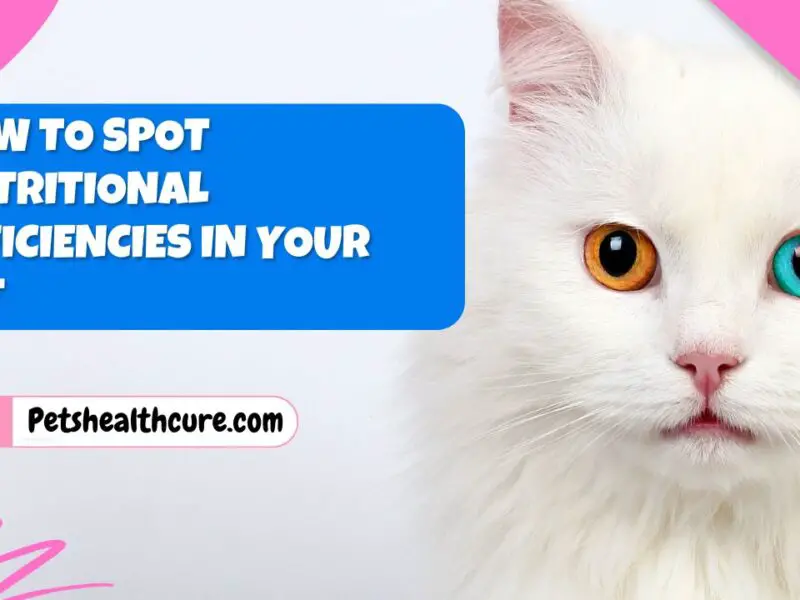Introduction
Providing your pets with a balanced diet is not just a matter of routine feeding; it is an essential component of their overall health, happiness, and longevity. Dogs and cats, like humans, require a carefully planned diet that meets their nutritional needs. However, what constitutes a balanced diet for these animals can differ significantly depending on their age, breed, size, and health condition. This guide aims to help pet owners navigate the complexities of pet nutrition and provide their furry companions with optimal care.
Understanding Nutritional Needs
Dogs
Dogs are omnivores, meaning their diet can include a mix of proteins, carbohydrates, and fats. However, proteins are the cornerstone of a dog’s diet, providing essential amino acids that the body cannot produce on its own.
- Essential Nutrients: Protein, fats, carbohydrates, vitamins (A, B-complex, D, E, and K), and minerals (calcium, phosphorus, zinc).
- Protein Sources: Chicken, beef, fish, lamb, eggs.
- Healthy Fats: Omega-3 and omega-6 fatty acids from fish oil, flaxseed, or chicken fat.
- Carbohydrates: Brown rice, sweet potatoes, oats.
- Vegetables: Carrots, spinach, and green beans for added fiber and nutrients.
Cats
Cats are obligate carnivores, meaning they require a diet primarily composed of animal-based proteins. Their bodies are designed to derive energy and nutrients from meat rather than carbohydrates.
- Essential Nutrients: High-quality protein, taurine, arachidonic acid, vitamins (A, B-complex, D, E, and K), and minerals (calcium, phosphorus).
- Protein Sources: Chicken, turkey, fish, liver.
- Healthy Fats: Animal fats and fish oils.
- Limited Carbohydrates: Cats don’t need carbohydrates, but small amounts from sources like rice can be included.
Homemade vs. Commercial Pet Food
Homemade Diets
Preparing food at home allows you to have complete control over the ingredients, ensuring your pet gets fresh and high-quality meals. However, homemade diets must be carefully balanced to avoid nutritional deficiencies.
- Advantages: Control over ingredients, avoids preservatives and caters to specific allergies.
- Disadvantages: Time-consuming, requires nutritional knowledge, tand he potential for imbalanced meals.
- Tips: Consult a veterinarian or pet nutritionist to ensure recipes meet your pet’s dietary needs.
Commercial Pet Food
Commercial pet foods are formulated to provide balanced nutrition, and they come in various types: dry kibble, wet canned food, and freeze-dried or raw options.
- Advantages: Convenient, nutritionally balanced (if high-quality), longer shelf life.
- Disadvantages: It can contain fillers, preservatives, or artificial flavors.
- What to Look For: Choose brands with high protein content, limited fillers, and clear ingredient lists.
Special Dietary Considerations
Age-Specific Diets
- Puppies/Kittens: Require calorie-dense food rich in protein and fats to support rapid growth.
- Adults: Need a maintenance diet with balanced nutrients to sustain energy and health.
- Senior Pets: Often require lower-calorie diets with joint-supporting supplements like glucosamine.
Breed-Specific Needs
Certain breeds have unique dietary requirements:
- Large Dog Breeds: Need controlled calcium and phosphorus to prevent joint issues.
- Small Breeds: Benefit from calorie-dense, smaller kibble sizes.
- Persian Cats: May require diets that reduce hairballs.
Health Conditions
- Obesity: Low-fat, high-fiber diets.
- Diabetes: Low-glycemic, high-protein diets.
- Kidney Disease: Reduced protein and phosphorus intake.
Portion Control and Feeding Schedules
- Portion Control: Overfeeding can lead to obesity, while underfeeding can cause malnutrition. Use recommended portion sizes based on weight and activity level.
- Feeding Frequency:
- Puppies and kittens: 3-4 meals per day.
- Adults: 1-2 meals per day.
- Seniors: Smaller, more frequent meals to aid digestion.
Supplements for Pets
While a balanced diet usually meets nutritional needs, some pets may benefit from supplements:
- For dogs, glucosamine (joint health), probiotics (digestion), and fish oil (skin and coat) are used.
- For cats, taurine (essential for heart and eye health), omega-3 (skin and coat), and cranberry supplements (urinary health) are also important.
Common Foods to Avoid
Certain human foods can be toxic to pets and should always be avoided:
- Chocolate
- Onions and Garlic
- Grapes and Raisins
- Alcohol
- Caffeine
- Xylitol (artificial sweetener)
FAQs
1. How do I know if my pet’s diet is balanced?
A balanced diet should meet all of your pet’s nutritional needs, including proteins, fats, carbohydrates, vitamins, and minerals. Consult your veterinarian to evaluate your pet’s current diet and make adjustments if necessary.
2. Can I feed my dog or cat a vegetarian diet?
Dogs can survive on a carefully planned vegetarian diet, but it is not ideal. Cats, being obligate carnivores, cannot thrive without animal-based proteins. Always consult a veterinarian before making dietary changes.
3. Is raw food safe for pets?
Raw food diets can be beneficial but come with risks of bacterial contamination. If you choose a raw diet, ensure it is properly balanced and prepared under hygienic conditions.
4. How can I manage my pet’s weight?
Monitor portion sizes, avoid overfeeding, and provide regular exercise. Choose diets specifically designed for weight management if needed.
5. Can I give my pet human food as treats?
Some human foods, like plain cooked chicken or vegetables, can be safe for pets in moderation. Avoid toxic foods like chocolate, onions, and grapes.
6. How often should I change my pet’s diet?
Pets usually thrive on a consistent diet. However, if dietary changes are necessary due to health issues or life stage, transition gradually over 7-10 days to avoid digestive upset.
7. What should I do if my pet shows signs of food allergies?
Common signs of allergies include itching, ear infections, or gastrointestinal issues. Consult your veterinarian to identify the allergen and switch to a hypoallergenic diet if needed.
8. Are grain-free diets better for pets?
Grain-free diets are not inherently better and may not be necessary unless your pet has a grain allergy. Consult your veterinarian before choosing such diets.
Conclusion
A balanced diet is the foundation of a healthy and happy life for your pets. Whether you choose homemade meals or commercial pet food, understanding your pet’s unique nutritional needs is crucial. Always consult your veterinarian before making significant dietary changes to ensure your furry companions receive the best care possible. With the right approach to nutrition, you can ensure your dogs and cats thrive at every stage of their lives.


